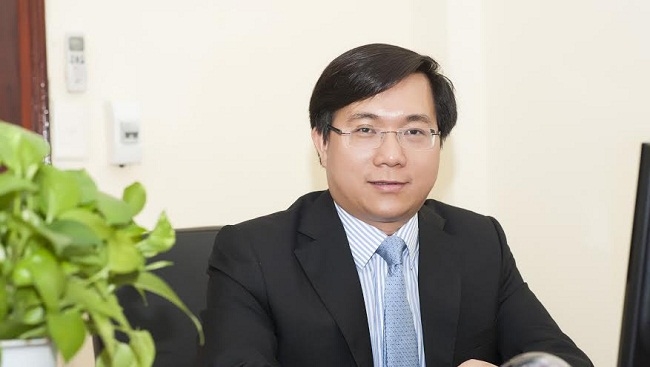Vietnam turns semiconductor vision into action
The global semiconductor industry is being reshaped by geopolitical tensions, shifting supply chains, and the surge of digital technologies.




According to Tran Duy Dong, Director General of the Ministry of Planning and Investment's Economic Zones Management Department, it must be more determined in developing the special economic zones (SEZs) with experiences being drawn during the progress. If there is no action, no result would be produced.

At the press conference on the draft Law on Special Administrative-Economic Units held by MPI on September 19, Tran Duy Dong answered journalists’ questions related to this issue.
Tran Duy Dong: These SEZs are located in strategic positions, attracting investments; and each zone has its own advantages. Specifically, Van Phong has a deepwater port, a convenient transshipment channel and is still wild, which is convenient for planning, while Phu Quoc has advantages of tourism and service development.
China has upgraded its SEZs to the 4th version, and Myanmar establishes 3 SEZs per year while Vietnam’s projects are still on paper. We are going too slowly and talking a lot about it but have no action. Therefore, we must be more determined in implementing the projects and gradually draw experiences or else no goal will be achieved.
Tran Duy Dong: Besides offering the mechanisms and policies such as tax incentives, 99-year land lease, etc., Vietnam’s SEZs will expand the business lines of conditional investment and shorten administrative procedures.
The draft law also creates favorable conditions for investors in addressing disputes such as applying foreign laws and permitting the settlement of disputes at the international courts.
The investment and business environment will be improved significantly. Also, individual responsibility will replace the collective responsibility, with chiefs of SEZs having some certain power.
The draft law set an open mechanism in which investors can negotiate the favorable conditions with chiefs of SEZs and offer adjustments.
Also, the chiefs of SEZs will be authorized to issue legal documents to facilitate the evaluation of procedures and apply the application of priority policy in customs procedures for enterprises investing in the SEZs. The court of SEZs is equivalent to the district level but its jurisdiction is equivalent to the provincial level.
Currently, the Ministry of Home Affairs is building three different projects for three special economic zones, concretizing the planning, population conversion, administrative arrangements, etc., However, everything must be done in accordance with principles.
Tran Duy Dong: The Law on Special Economic Administrative Units only regulates new points, facilitating only SEZs. The provisions not mentioned in the draft will be implemented in accordance with the law listed. For example, a person having only one nationality is not allowed to possess over 30 per cent of the total houses.
Currently, the Ministry of Defense is building a scheme to ensure the national security and defense.
Tran Duy Dong: The chiefs of SEZs are appointed by the Prime Minister after the chairman of the People's Committee proposes and the Ministry of Home Affairs appraises and submits to the Government.
The process must be transparent with the involvement of experts, scientists, strategic investors who will inspect the chiefs’ actions. SEZs’ chiefs will have 77 authorities and he must be responsible for the decentralized authority. In case they can not meet the requirements, a dismiss will be proposed.
Tran Duy Dong: According to the draft law, The People’s Council and The People's Committee will not be established. Instead, the chiefs of SEZs have to take responsibility for managing, deciding and monitoring the implementation of administrative, economic and social activities in the area. This ensures the international competitiveness for SEZs but creates a lot of controversies concerning the constitutionality.
We can affirm that this regulation does not go against the constitution but its constitutionality has been still questioned, especially the administrative arrangement concerning the involvement of The People’s Council and The People’s Committee.
The global semiconductor industry is being reshaped by geopolitical tensions, shifting supply chains, and the surge of digital technologies.
The change in APA approval authority is expected to shorten processing time and enhance business proactiveness in international tax negotiations.
As hybrid cloud systems grow more complex, Vietnamese enterprises are struggling to detect cybersecurity threats moving laterally within their own networks.
The submission of the draft resolution on Vietnam’s international financial center to the National Assembly heralds a new developmental era for the country.
More than just running a 5-star resort, Kristian Petersen is redefining the art of hospitality with a humane and sustainable leadership philosophy.
For Tyna Huynh, co-founder of Drinkizz, organic is not just a food choice but a way of life that fosters a deep connection between people, nature and community.